world of natural medicine, the search for effective, plant-based interventions for attention-deficit/hyperactivity disorder (ADHD) has gained significant momentum. Especially among women—who are historically underdiagnosed and often mischaracterized in ADHD research—the need for tailored, safe, and evidence-based remedies is more urgent than ever. While pharmacological treatments remain a mainstay, a growing body of scientific and anecdotal evidence supports the use of herbs and botanicals as complementary tools in promoting cognitive balance, focus, and mental clarity.
You may also like: Best Herb for ADHD Support: How Natural Remedies and Herbs for ADHD Women May Help Boost Focus and Calm
Understanding ADHD in Women: A Nuanced Neurobiological Landscape
ADHD in women often presents differently than in men, with more internalized symptoms such as inattentiveness, disorganization, and emotional dysregulation rather than overt hyperactivity. These subtleties contribute to delayed diagnoses and a higher risk of coexisting conditions like anxiety and depression. For many women, standard stimulant medications come with undesirable side effects, prompting a search for gentler, yet effective, alternatives.
Herbs offer potential benefits by modulating neurotransmitter activity, improving stress resilience, and supporting overall nervous system health. For those seeking non-pharmaceutical pathways or adjunctive therapies, understanding the best herb for ADHD becomes an essential part of a holistic wellness strategy.
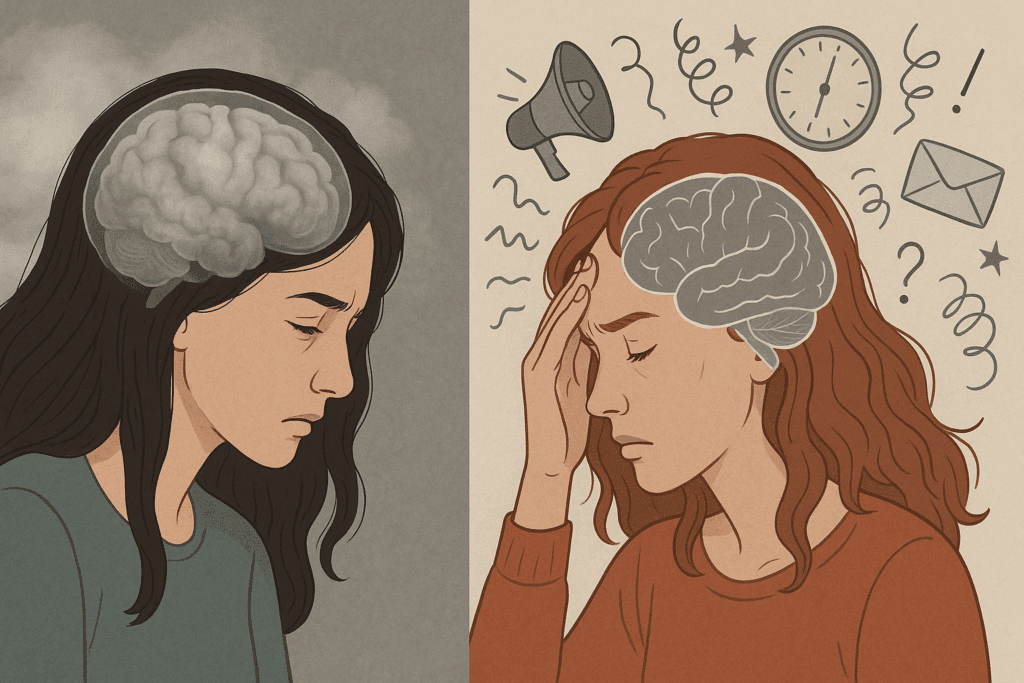
Adaptogens and Nootropic Botanicals: Nature’s Answer to Cognitive Clarity
Adaptogenic herbs such as Rhodiola rosea and Withania somnifera (Ashwagandha) are celebrated for their ability to balance the body’s stress response, a vital component in managing ADHD symptoms. Rhodiola, in particular, may enhance dopamine sensitivity, which plays a pivotal role in attention regulation. Ashwagandha, with its anxiolytic and anti-inflammatory properties, supports emotional resilience and clarity of thought—key challenges for many women with ADHD.
Equally promising are nootropic herbs like Bacopa monnieri, Ginkgo biloba, and Gotu kola. These botanicals have been used in traditional medicine systems like Ayurveda and Traditional Chinese Medicine (TCM) to improve memory, concentration, and mental stamina. Clinical trials have demonstrated Bacopa’s ability to enhance working memory and reduce mental fatigue, making it a powerful ally in the effort to stay mentally organized and recall information efficiently—an essential skill for those wondering how to remember information for exams or how to memorize for a test.
The Cognitive Power of Bacopa Monnieri
Bacopa monnieri stands out as one of the most researched herbs for cognitive enhancement, especially in the context of ADHD and age-related memory decline. It operates primarily by modulating levels of acetylcholine, a neurotransmitter essential for learning and memory formation. Beyond its neurochemical actions, Bacopa’s antioxidant properties may also help reduce oxidative stress in the brain, fostering a healthier cognitive environment.
For students and professionals alike, especially women juggling multiple responsibilities, Bacopa’s benefits can be transformative. Understanding how to memorize notes or how to remember what you read for exams often comes down to supporting the brain’s ability to process and retrieve information quickly. Bacopa not only aids in encoding new information but may also enhance long-term retention—a major advantage during intense study periods or high-pressure work deadlines.
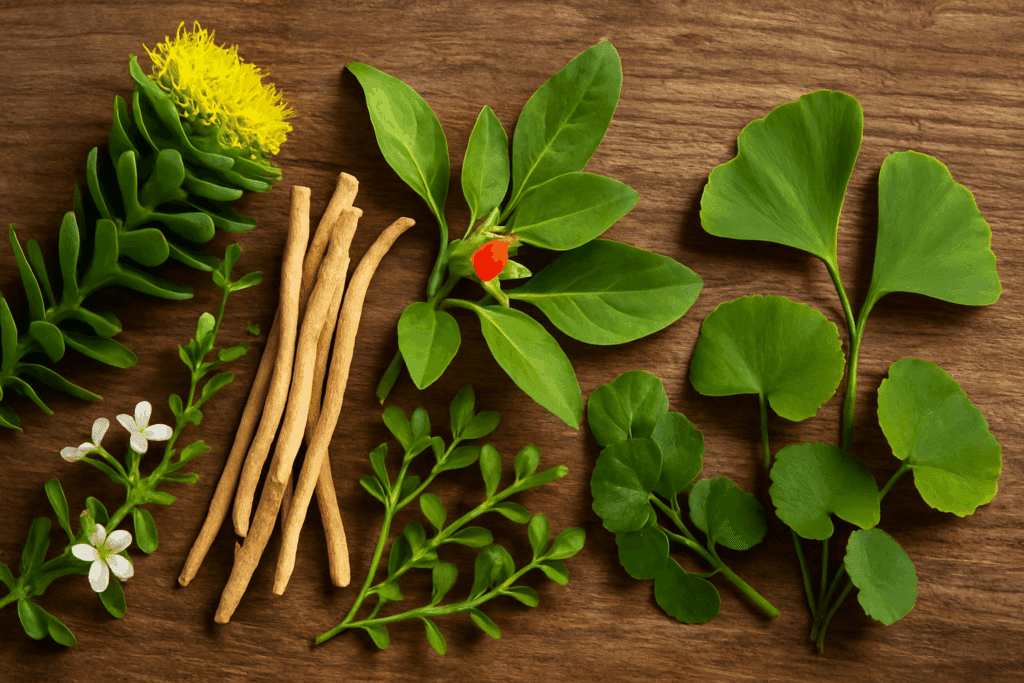
Ginkgo Biloba: Enhancing Focus and Circulation
Ginkgo biloba has long been revered for its ability to increase cerebral blood flow and enhance cognitive performance. Rich in flavonoids and terpenoids, it acts as a neuroprotective agent by improving vascular function and mitigating oxidative damage. These mechanisms are particularly relevant for individuals experiencing mental fog or difficulties concentrating, both common complaints among women with ADHD.
Research suggests that Ginkgo may help with short-term memory, attention span, and even mood stabilization. While not a standalone treatment for ADHD, it offers complementary support, especially when paired with healthy lifestyle practices and effective study strategies. For those struggling with how to remember things while studying or how to remember information for a test, Ginkgo can serve as a useful botanical supplement in an integrative cognitive support plan.
Gotu Kola and the Nervous System: Gentle Support for Mental Fatigue
Gotu kola, a staple in Ayurvedic and Southeast Asian medicine, is often overlooked in Western herbal discussions. However, its ability to rejuvenate the nervous system and improve circulation makes it highly relevant for cognitive health. Unlike stimulants, Gotu kola offers a calming yet clarifying effect, making it ideal for individuals who experience sensory overwhelm or anxiety-driven concentration difficulties.
One of Gotu kola’s unique strengths is its adaptogenic quality—it supports both calm and focus, without the jitteriness often associated with caffeine or prescription stimulants. This makes it particularly valuable for women seeking ways to be less forgetful and more organized without sacrificing inner calm. Whether preparing for a presentation or searching for ways to remember stuff when studying, Gotu kola’s subtle but effective influence can be a powerful part of a daily mental clarity routine.

Lemon Balm and Passionflower: Herbal Allies for Emotional Regulation
While focus and memory are central to managing ADHD, emotional regulation is equally critical—especially for women, who may experience mood fluctuations tied to hormonal cycles. Lemon balm and passionflower are gentle yet effective herbs that soothe the nervous system and reduce anxiety, which can often be an underlying barrier to sustained attention and memory consolidation.
Lemon balm has been shown to improve calmness and alertness simultaneously, a rare and desirable effect for those managing fluctuating cognitive states. Passionflower, traditionally used for insomnia and nervous tension, may help lengthen attention spans by reducing underlying anxiety. Together, these herbs can make it easier to stay present, reduce distractions, and retain new information—benefits directly aligned with questions like how to remember what you study or how to memorize for exams without stress.
Synergistic Blends and Personalized Formulations
Rather than relying on a single herb, many practitioners recommend synergistic herbal blends that combine the strengths of multiple botanicals. For instance, a formulation combining Bacopa, Gotu kola, and Ginkgo might offer balanced support for memory, focus, and cerebral blood flow. Such combinations can be customized based on an individual’s unique neurological and hormonal profile—a key consideration in women’s health.
When exploring natural solutions, it is essential to consult healthcare professionals with expertise in integrative medicine. Personalized recommendations ensure that herbs are used in appropriate dosages and combinations, minimizing potential interactions with existing medications. For those actively seeking answers to how to remember things for exams or how to memorize something for a test, customized herbal strategies can be as effective as they are empowering.
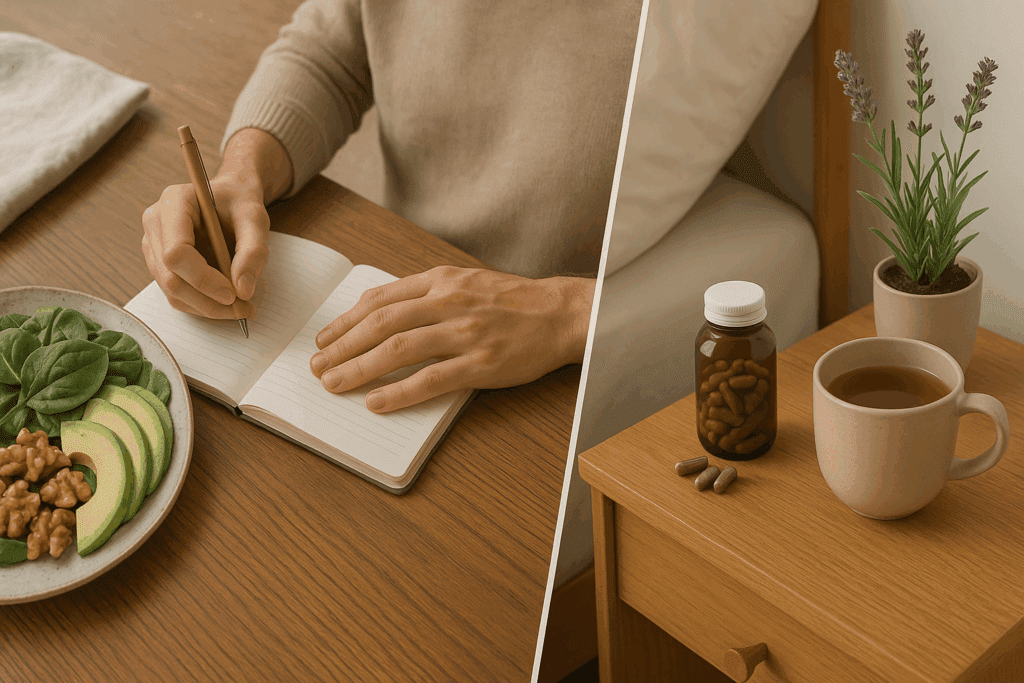
Integrating Herbal Remedies with Lifestyle Practices
Herbs work best when integrated into a comprehensive lifestyle that supports brain health. Nutrition, sleep hygiene, stress management, and structured routines all play crucial roles in cognitive function. Diets rich in omega-3 fatty acids, B vitamins, and antioxidants provide foundational nourishment for neurotransmitter production and neural repair.
Sleep, in particular, is non-negotiable. Inadequate rest impairs attention, short-term memory, and decision-making—areas already compromised in individuals with ADHD. Herbal remedies like valerian root or lavender may support deeper sleep, further enhancing the benefits of daytime cognitive herbs. Physical activity, too, boosts endorphins and promotes neuroplasticity, offering another avenue for improving memory and focus.
For women in academic or professional environments, building habits that reinforce information retention is just as important as herbal supplementation. Techniques such as spaced repetition, visual mapping, and active recall are proven methods for improving how to memorize notes and how to remember what you study long-term.
Practical Strategies for Studying with Herbal Support
To fully harness the benefits of herbal cognitive enhancers, women can pair them with scientifically validated study strategies. For example, using Bacopa while practicing active recall techniques may amplify neural encoding, helping users not only memorize but also understand complex material. Ginkgo’s circulation-boosting effects can be maximized when studying in well-lit, ventilated environments that stimulate alertness.
Creating a designated study space, maintaining consistent schedules, and incorporating mindfulness practices can also reinforce focus. For those who struggle with how to remember information for exams or how to memorize things fast for exam sessions, the combination of targeted botanicals and cognitive techniques offers a multifaceted solution. Over time, these practices create neural pathways that enhance both short- and long-term memory retention.
Safety, Side Effects, and Contraindications
Despite their natural origin, herbs can have potent effects and potential interactions. For example, Ginkgo biloba may thin the blood and should be used cautiously with anticoagulants. Bacopa may cause gastrointestinal discomfort in some individuals, especially when taken on an empty stomach. Ashwagandha can lower cortisol, which is beneficial in stress regulation but may interact with thyroid medications.
It is crucial for women—especially those who are pregnant, nursing, or managing chronic conditions—to consult with a qualified practitioner before starting any new herbal regimen. Understanding potential side effects, contraindications, and appropriate dosages ensures that the journey toward mental clarity is both safe and effective.
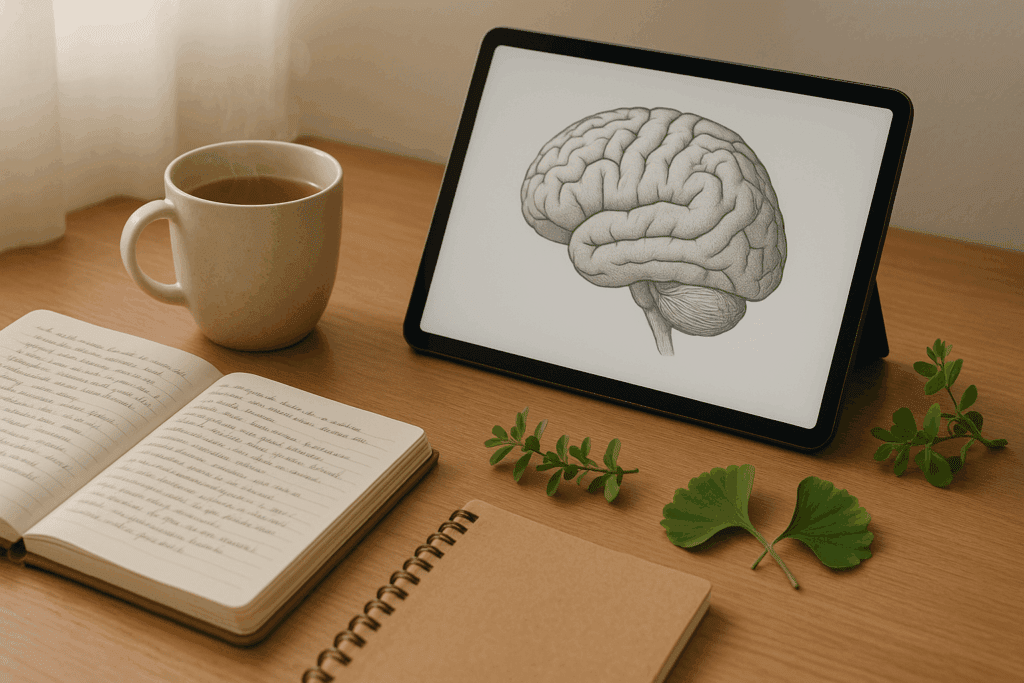
Frequently Asked Questions: Natural Herbal Support for ADHD in Women
What are some overlooked daily habits that can support herbal treatments for ADHD and prevent forgetfulness?
While herbal treatments like Bacopa or Gotu kola can offer valuable cognitive support, their impact increases significantly when paired with everyday memory-strengthening habits. Maintaining structured daily routines—such as setting fixed times for meals, study sessions, and sleep—can reinforce internal time cues and reduce mental fatigue. These habits help train the brain on how to not forget things by creating predictable environments that promote mental clarity. Another underutilized strategy is minimizing multitasking; focusing on one task at a time improves information retention and helps those who want to learn how to prevent forgetting things during busy schedules. In the long run, pairing herbal support with intentional lifestyle structuring offers a dual approach to learning how to be less forgetful in real life—not just during study time.
Can emotional regulation techniques enhance the memory-boosting effects of herbs for ADHD?
Yes, emotional regulation plays a crucial role in memory formation, especially for individuals navigating ADHD. When the mind is calm, it more effectively encodes and stores information—making it easier to remember later. Techniques like deep breathing, mindfulness meditation, or journaling can be practiced alongside herbal remedies to enhance their effects. These techniques help individuals learn how to stop being forgetful by creating an emotionally balanced baseline for memory processing. Women who use both herbs and emotional regulation strategies often report fewer instances of cognitive fog and greater success in learning how to not forget stuff, especially in emotionally charged environments like exams or work presentations.
How do hormonal fluctuations impact forgetfulness in women with ADHD, and how can herbs help?
Hormonal shifts—such as those during menstruation, pregnancy, or menopause—can significantly impact neurotransmitter balance, memory recall, and attention. These changes often make it harder for women to remember simple things like daily appointments or even conversations. Adaptogenic herbs like Ashwagandha and Rhodiola rosea may help buffer these hormonal effects by supporting the hypothalamic-pituitary-adrenal (HPA) axis. For women wondering how to prevent forgetting things during these periods, using herbs that regulate stress and hormonal imbalance can be especially helpful. Pairing these herbs with strategic reminders or digital planning tools further reinforces memory retention, giving women a broader toolkit for how to not forget things even during hormonal instability.
Is there a link between physical exercise and memory enhancement when combined with herbal support?
Absolutely. Physical activity enhances blood flow to the brain, stimulates neurogenesis, and releases endorphins—all of which improve mood and memory function. When combined with herbs like Ginkgo biloba, which enhances cerebral circulation, the benefits are often amplified. Those seeking advice on how to remember more effectively or how to not forget stuff can benefit from a consistent exercise routine that includes aerobic activity and strength training. Physical movement primes the brain to receive and store information more efficiently, supporting anyone looking for strategies on how to stop being forgetful. The combination of movement and botanical cognitive support creates a robust foundation for lasting memory improvement.
How can digital tools be used alongside herbs to reinforce memory and reduce forgetfulness?
Digital tools such as spaced repetition apps, voice note recorders, and interactive flashcards can serve as memory anchors when used in tandem with herbal treatments. These tools help break information into manageable chunks and reinforce neural encoding through repetition and sensory engagement. Women looking for ways on how to remember things better for exams or how to not forget stuff in daily life can benefit greatly from this approach. When herbs improve brain function, and technology reinforces learned material, the dual strategy increases cognitive retention. This integrative model supports long-term learning and is particularly valuable for those actively trying to learn how to prevent forgetting things through a blend of natural and digital resources.
What role does nutrition play in enhancing the effects of memory-supportive herbs for ADHD?
Nutrition acts as the biochemical backbone of cognitive function, directly influencing how well herbal treatments can work. Nutrients such as omega-3 fatty acids, magnesium, B-complex vitamins, and choline are essential for neurotransmitter production and synaptic communication. For those wondering how to be less forgetful, ensuring that their diet includes brain-nourishing foods is just as crucial as herbal supplementation. Consuming foods like leafy greens, wild-caught salmon, eggs, and nuts can enhance the effectiveness of memory-boosting herbs. This integrated nutritional approach offers a practical path for how to stop being forgetful in both short-term learning and lifelong brain health.
Can certain scents or aromatherapy enhance herbal cognitive support and memory retention?
Aromatherapy is an often-overlooked adjunct to herbal support for memory and focus. Scents like rosemary, peppermint, and lemon balm have been shown in clinical studies to enhance alertness and memory consolidation. Using essential oils in diffusers, roll-ons, or inhalers can be particularly helpful during study sessions or high-stakes tasks. Those exploring how to remember information more effectively and how to not forget things may find that pairing specific scents with study habits creates a sensory trigger for recall. This multisensory learning strategy not only complements herbal supplementation but also introduces a novel way to learn how to prevent forgetting things with minimal effort.
Are there specific memory training exercises that work well with herbal support for ADHD?
Yes, cognitive training programs and memory exercises can be particularly effective when combined with herbal support. Techniques such as the Method of Loci, chunking, and dual coding are designed to strengthen neural pathways for encoding and retrieval. When used in conjunction with nootropic herbs like Bacopa or Ginkgo, these exercises become even more potent. They help women not only retain facts but also understand how to remember sequences, timelines, and detailed content—a challenge for many with ADHD. Integrating these techniques into daily routines is a powerful strategy for how to not forget stuff and can significantly improve everyday memory performance.
What social or environmental factors influence forgetfulness, and how can they be mitigated?
Disorganized environments and social distractions can create cognitive overload, making it harder to focus and remember details. High noise levels, frequent interruptions, or emotional tension in a workspace can derail even the most focused mind. Herbs may help counteract some of these stressors, but modifying one’s physical and social environment is equally critical. Creating clutter-free spaces, using noise-canceling headphones, and setting clear boundaries with others can dramatically enhance the brain’s ability to store information. For those looking into how to stop being forgetful in chaotic settings, combining herbal and environmental interventions provides a more holistic solution.
How can one track progress and adjust herbal strategies over time to reduce forgetfulness?
Tracking memory performance over time is essential for refining herbal strategies and improving outcomes. Journaling daily experiences, noting the effectiveness of specific herbs, and monitoring patterns in forgetfulness can provide valuable insights. Women can use mood and productivity tracking apps to identify trends in how they respond to certain supplements. This reflective practice not only teaches individuals how to be less forgetful but also empowers them to adapt their protocols as needed. Long-term tracking turns passive supplement use into an active, personalized process that addresses how to not forget things based on real-world data.
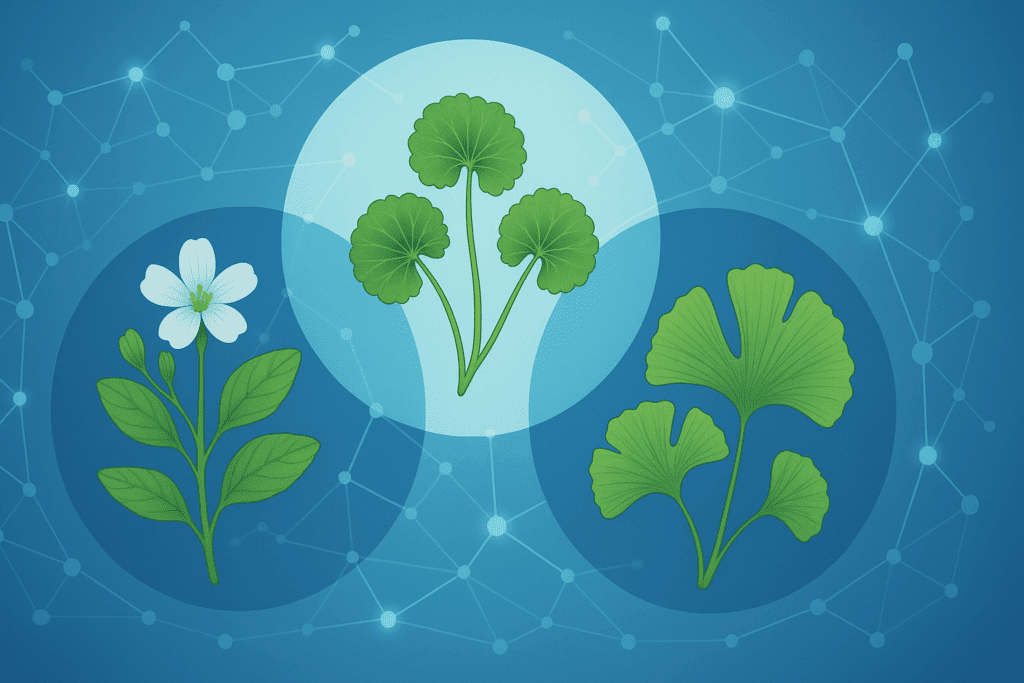
Rethinking ADHD Support: Empowering Women Through Holistic Solutions
The conversation around ADHD is shifting, especially as more women seek integrative approaches that align with their unique physiological and psychological needs. Herbs offer a compelling option: they are versatile, customizable, and rooted in centuries of traditional use, now increasingly supported by modern research. For women navigating the challenges of focus, memory, and emotional regulation, the right blend of botanicals can open new pathways toward cognitive vitality.
Moreover, when herbs are used in conjunction with proven memorization techniques, the benefits multiply. Whether the goal is to learn how to remember information for a test, how to remember things while studying, or how to memorize for exams under pressure, an integrative approach delivers results that go beyond symptom management.
By blending scientific rigor with natural wisdom, women can embrace a new paradigm of cognitive care—one that honors both mind and body, supporting lifelong mental clarity, emotional balance, and academic or professional success.
Further Reading:
Memory loss: 7 tips to improve your memory
How to Stop Forgetting Important Things: Understand the Neuroscience of Memory


